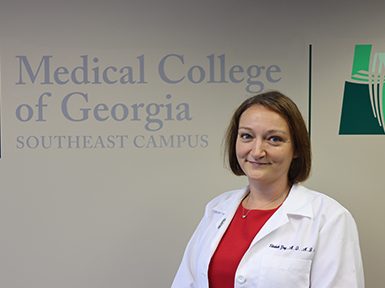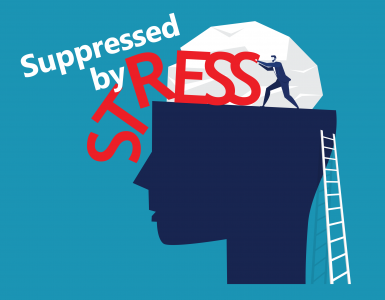
Associate Vice President for Gift and
Estate Planning for the Medical College of Georgia and Augusta University
After decades of philanthropic support of his alma mater, the Medical College of Georgia, Dr. John Lee Jr., ’75, a retired OB/GYN from Roswell, Georgia, and his wife decided they would like to establish a named scholarship to benefit MCG students with financial need.
Wisely, the Lees elected to fund the scholarship – the Betty A. and John L. Lee, Jr. M.D. Scholarship – with annual distributions from their traditional IRA (Individual Retirement Account). Not only did doing so meet their philanthropic goals, allowing them to see the scholarship awarded in the near-term, it also made good sense for them financially.
An IRA is a retirement plan offered by many financial institutions that allows individuals to save pre-tax dollars for the contributor’s benefit as they reach a certain age. For example, individuals who reach age 59 ½ can withdraw from their IRA without penalty (though the withdrawal will be taxed). Many people roll their retirement plans into IRAs as they leave their company’s employment.
For those who have reached age 70 ½, the federal government allows for up to $100,000 to be gifted directly to a qualified charity without any tax liability. Since IRAs are funded with pre-tax dollars, an altruistic way to avoid taxes at distribution is through a charitable gift.
Once the holder reaches the age of 72 ½, the IRS requires an annual minimum distribution (RMD), based on the value of the IRA. The distribution will be taxed unless it is gifted to a charitable organization.
When considering making a philanthropic gift, many donors consider IRA distributions so they, like the Lees, will have the benefit of seeing the impact of the gift in their lifetimes. Others choose to make a deferred gift of their IRA by simply including the charity(s) on their change of beneficiary form. Donors may elect a blend of the two – both lifetime and deferred giving.
IRAs can also be gifted to individuals. However, the beneficiary is subject to taxation as regular income while charities can receive the full amount of the IRA without tax.
If an IRA is gifted to a family member(s) other than a spouse, it must be fully distributed within 10 years. In this scenario, it is possible for the individual receiving the inherited IRA, who may already be in a high tax bracket, to forfeit up to 80% of the value of the IRA. This would largely negate the intended benefit of the inheritance.
If an IRA is gifted to a spouse, it can be done without tax consequences. However the widow(er) must keep it as an IRA, subject to the same regulations outlined above.
Gifting an IRA distribution to a charitable organization does not increase the complexity of filing one’s taxes. Including a qualified charity as an ultimate beneficiary of an IRA requires only a change of beneficiary form to be completed with the IRA Custodian. Philanthropy methods vary in how they are structured. Utilizing an IRA gift benefits the donor and the charitable organization. More importantly, it provides tangible support for the student, faculty member, patient, program, or other area designated by the donor.
A named endowed scholarship at the MCG Foundation, ensuring one’s legacy in perpetuity, can be established through a gift of $100,000 or more. The corpus of the endowment is not touched. Rather, the interest generated from the endowment provides an annual distribution to support our medical students.
Please be sure to consult with your professional advisor to determine the most effective way to fulfill your philanthropic wishes — whether in the short-term with an IRA distribution or in the long-term with a deferred gift (or both).
It made good financial sense for the Lees to fund a scholarship with their IRA and it allows them to experience the inherent gratification knowing MCG students are benefitting from their generosity. Perhaps it will make good sense for you and your family as well!
For more information
on creating a legacy,
contact Mary,
706-721-5027 or
Mmccormack1@augusta.edu.








